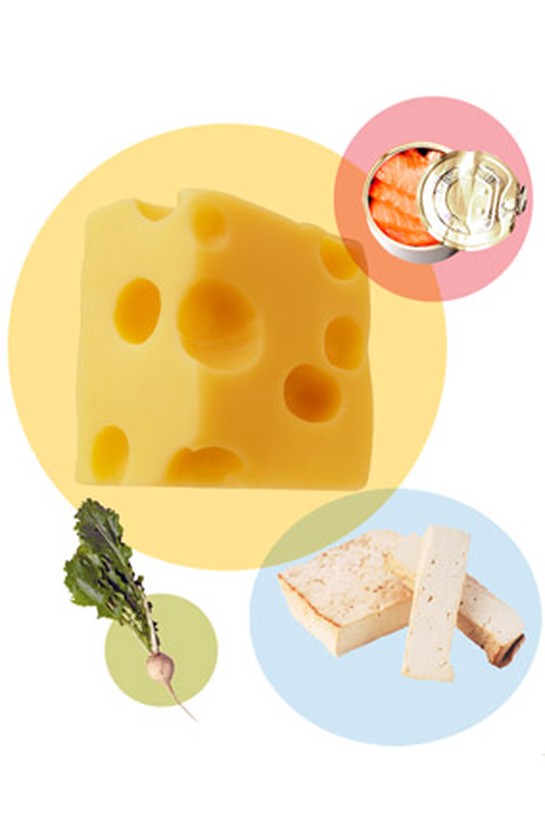4 Ways to Get Nutrients from Your Food (Instead of a Pill)
A guide to getting your nutrition from real food rather than a handful of capsules.
By Emma Haak
Supplements are one way to consume vitamins and minerals, but nutrients from your plate typically trump the stuff in a pill. That's because whole foods are so much more complex, providing an array of micronutrients (and other healthy substances) that your body also needs to function well, says dietitian Maria Bella, founder of Top Balance Nutrition in New York. (Consider strawberries: Beyond vitamin C, they contain potassium, manganese, copper, folate, magnesium, zinc, niacin, and vitamin K.) All those compounds work synergistically, providing more benefits together than they would separately in capsules. And of course, as Bella points out, eating real food is just more fun. But what does it take to meet your daily quotas through your diet? We've done the math for four essential nutrients.
Ninety-nine percent of the calcium in our bodies is stored in the bones and teeth," says nutritionist Jonny Bowden, PhD, author of The 150 Healthiest Foods on Earth. Calcium plays a major role in preventing osteoporosis, but it also helps with nerve signaling, muscle contraction, and the secretion of hormones and enzymes. Though dairy products have the highest absorbable calcium content per serving, you don't have to rely on dairy alone to get your recommended daily allowance (RDA).
100% of your RDA of calcium:
Calcium
Ninety-nine percent of the calcium in our bodies is stored in the bones and teeth," says nutritionist Jonny Bowden, PhD, author of The 150 Healthiest Foods on Earth. Calcium plays a major role in preventing osteoporosis, but it also helps with nerve signaling, muscle contraction, and the secretion of hormones and enzymes. Though dairy products have the highest absorbable calcium content per serving, you don't have to rely on dairy alone to get your recommended daily allowance (RDA).
100% of your RDA of calcium:
- ½ cup cooked turnip greens OR ½ cup cooked kale (about 10 percent)
- ⅔ cup firm tofu OR 1 cup low-fat macaroni and cheese (about 30 percent)
- 8 dice-size cubes Swiss cheese OR 1 cup plain nonfat yogurt (about 40 percent)
- 3 ounces canned pink salmon OR 4 teaspoons roasted sesame seeds (about 20 percent)
From the April 2012 issue of O, The Oprah Magazine


